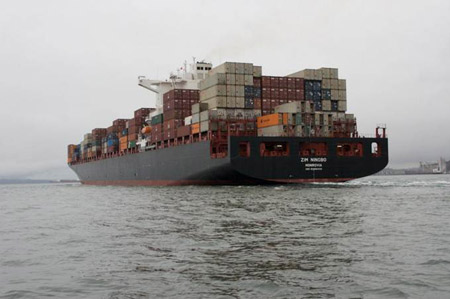Delays in Commodity Shipments Due to Ebola Fall into Murky Legal Area
Category: Cocoa
 (Wall Street Journal) – Commodity traders, lawyers and insurers are grappling with how to handle potential delays and disruptions caused by the spread of Ebola in West Africa.
(Wall Street Journal) – Commodity traders, lawyers and insurers are grappling with how to handle potential delays and disruptions caused by the spread of Ebola in West Africa.
The companies that trade and ship agricultural commodities such as rice and wheat usually carry insurance policies shielding them from damages caused by events such as political unrest, hurricanes and fires. Contracts to buy and sell commodities typically include language that offers similar protection.
But it isn’t clear whether Ebola would be covered, lawyers and insurance experts say. That could leave companies that buy, transport and sell commodities in the lurch if exports are halted because of the disease, or if ships refuse to dock in the ports of affected countries.
“There is no ‘Ebola clause’ that will easily cover companies in the supply chain,” said Adam Rekerdres, vice president of Rekerdres & Sons Insurance Agency, which offers insurance for commodity suppliers and users. “It’s a real gray area right now.”
The three countries at the center of the Ebola outbreak—Guinea, Sierra Leone and Liberia—are significant grain importers. Guinea is a major exporter of bauxite, a key component in aluminum.
Some analysts and traders fear the disease could spread to Ivory Coast and Ghana, which produce much of the world’s cocoa. Shipping in the region is largely proceeding normally, people in the industry said.
It isn’t clear whether companies would be able to claim force majeure for reasons tied to Ebola. That clause is invoked by parties when they can’t meet their contractual obligations due to unforeseen and catastrophic events outside their control.
If a country shuts its ports, force majeure would clearly apply, experts say. But if shippers are unwilling to enter an open port because they fear crew members will be put at risk, the situation is more ambiguous.
“Everything is topsy-turvy and it hasn’t gotten to the point where people say you don’t have to” dock, said Edward Keane, a maritime lawyer at New York firm Mahoney & Keane, LLP. “So the ship is caught in the middle.”
Mr. Keane said insurers are considering clauses that could make stopping in Ebola hot spots optional if the company foresees a danger.
Ebola precautions could mean delayed shipments. The disease already is setting the stage for a “food crisis” in import-reliant countries in West Africa, a United Nations agency said this past week.
In Sierra Leone, 40% of farmers are leaving their fields abandoned, said Kanayo F. Nwanze, president of the International Fund for Agricultural Development. “Crops are rotting in the fields…there’s going to be a major food crisis in West Africa,” he said.
Commodities companies shipping to and from West Africa also may be facing higher costs, analysts said.
“What it could do is up the freight cost to West Africa,” said Michael McDougall, head of the Brazil desk at New York brokerage Newedge. “The freight companies will charge more to go in and out of” West Africa.
That region, the source of more than two-thirds of the world’s cocoa beans, has caught the attention of chocolate makers, such as Nestlé SA . The chief executive of the maker of Crunch bars and KitKats said the company was on “high alert” because of Ebola.
The legal uncertainties are emerging amid warnings from the World Health Organization about the disease’s spread. It on Wednesday said 5,000 to 10,000 new cases a week could be reported by early December.

